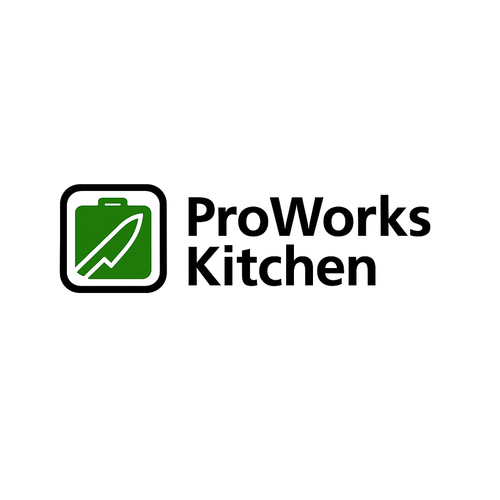When it comes to food preparation, the material you choose for your cutting board can impact both your health and your kitchen efficiency. Plastic cutting boards have long been the go-to for many cooks due to their convenience and low cost. However, recent studies have raised concerns about their hidden dangers, especially when it comes to hygiene and environmental impact. In this post, we’ll explore why plastic cutting boards may not be the best choice for your kitchen and why stainless steel and titanium cutting boards are the superior alternatives.
1. The Hidden Dangers of Plastic Cutting Boards
Plastic cutting boards, while easy to clean, have a major flaw that many don’t realize: they are a breeding ground for bacteria. Every time you chop food, especially raw meat, plastic boards develop grooves and scratches from your knives. These grooves can trap food particles, which bacteria then feed on. Even with proper washing, it’s nearly impossible to completely clean these cuts, making plastic boards a health risk.
What Happens to Plastic Over Time?
- Microplastics: When you cut on plastic, tiny pieces of plastic break off. These microplastics can end up in your food, posing potential long-term health risks as they are ingested. A recent study showed that consumers could ingest tens of millions of microplastic particles a year from plastic boards .
- Knife Damage: Over time, these boards accumulate deep knife marks, which not only make the board harder to clean but also increase the wear on your knives. Plastic cutting boards can dull your knives quickly, leading to frequent sharpening and potentially costly repairs.
Why Plastic Cutting Boards Are Not the Best Choice:
- Bacteria buildup in grooves and cuts, even with regular washing.
- Microplastic pollution is released during cutting and over time.
- Knife dulling happens faster compared to more knife-friendly surfaces like wood or metal.
2. The Cleanliness and Durability of Stainless Steel
304 Stainless Steel cutting boards provide a hygienic, long-lasting solution that outperforms plastic in several key areas.
Why Stainless Steel Cutting Boards Are Superior:
- Non-porous Surface: Stainless steel is a non-porous material, meaning that it doesn’t absorb moisture, food juices, or odors. This makes it incredibly easy to clean and sanitize, reducing the risk of cross-contamination.
- Durability: Unlike plastic, stainless steel cutting boards don’t get scratched up easily. Even if they do, the surface remains intact, ensuring that the board remains functional and hygienic over time.
- Long Lifespan: Stainless steel boards can last a lifetime with proper care. They don’t warp, crack, or degrade the way plastic boards do over time, meaning you’ll need to replace them far less often.
Why Choose Stainless Steel?:
- Easy to clean and bacteria-resistant.
- Durable and long-lasting, unlike plastic, which wears out with use.
- Aesthetically modern and sleek, adding style to your kitchen.
3. Titanium Cutting Boards: The Premium Choice for Knife Care and Hygiene
If you're looking for the best of the best, titanium cutting boards offer all the benefits of stainless steel and more. 99.8% pure titanium is biocompatible, highly durable, and incredibly gentle on knives, making it the ultimate choice for health-conscious cooks.
Benefits of Titanium Cutting Boards:
- Knife-Friendly: Titanium is softer than steel, which means it’s gentler on your knives, helping them retain their sharp edges longer.
- Hygiene: Like stainless steel, titanium is non-porous and easy to clean. It won’t absorb food juices or odors, making it a safe and sanitary option for food prep.
- Corrosion-Resistant: Titanium’s corrosion resistance makes it an ideal material for kitchen use. It won’t rust or degrade, even with frequent exposure to moisture and food acids.
Why Titanium Is the Best Choice for Your Kitchen:
- Preserves knife edges much longer than steel or plastic.
- Non-toxic and hypoallergenic, making it ideal for sensitive individuals.
- Exceptionally durable, offering a long lifespan.
4. The Environmental Impact of Plastic Cutting Boards
Plastic boards are made from petroleum-based materials, and at the end of their life, they contribute significantly to plastic waste. Microplastics from worn-out boards can pollute the environment, entering water supplies and harming wildlife. Additionally, many plastic boards are not recyclable due to the nature of their composition.
Stainless Steel and Titanium: The Sustainable Options:
- Stainless steel is 100% recyclable, so when your board reaches the end of its life, it can be recycled and reused, making it a sustainable choice.
- Titanium is also recyclable, although its recycling rate is lower than steel’s. However, titanium boards can last decades, minimizing the environmental impact of replacements.
By choosing stainless steel or titanium, you're investing in materials that last longer, require less maintenance, and are more sustainable compared to plastic, which contributes to environmental pollution.
5. Why You Should Switch to Stainless Steel or Titanium Today
At ProWorksKitchen, we believe that upgrading your cutting board is an important step toward creating a healthier, more sustainable kitchen. Here’s why switching to stainless steel or titanium is the right choice for you:
- Hygiene: No more worrying about bacteria hiding in grooves or microscopic plastic particles in your food.
- Knife care: Preserve the sharpness of your knives for longer, saving you money on maintenance and repairs.
- Durability: Stainless steel and titanium are built to last, meaning you won’t need to replace your cutting board every few years.
By making the switch, you’re investing in a premium product that’s not only better for your health but also better for the planet.
